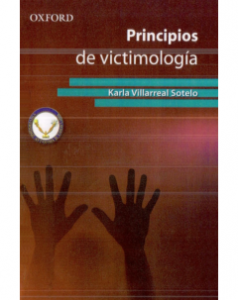Principles of victimology
Synopsis
This book addresses one of the most neglected areas in the study of crime: that of people who suffer the consequences of violence, which fractures the lives of citizens and transforms their social and cultural customs, their links, their ideals and their hope.
The author reviews in eight chapters the history of victimology, its relationship with criminal sciences, its multiple typologies and the importance of international symposia on the subject, which have helped to mitigate the isolation suffered by the crime victim.
The trajectory of the victimological studies in the world is also analyzed; the contributions of criminologists and victimologists; the treatment of the victim in the new Mexican penal system, with emphasis on the measures aimed at repairing the damage, and the consideration of the victim in both the Rome Statute and the International Criminal Court.
This historical synthesis includes the contributions and difficulties of victimological science; it brings us closer to one of the most difficult legal, social and cultural issues, and raises the importance of understanding the processes of victimization, access to justice, assistance to the victim and the prevention of crime.



